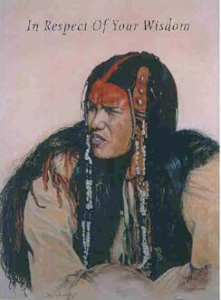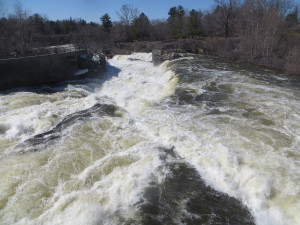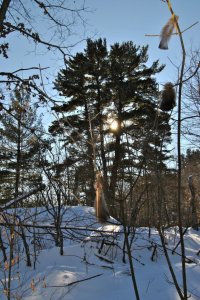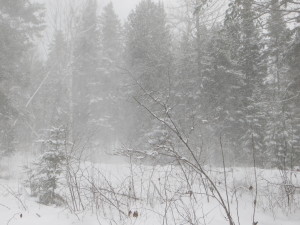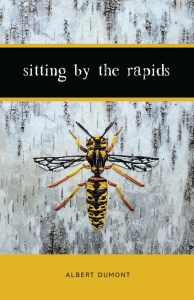The Anishinabe (First Peoples) of past times looked with wounded hearts upon the destruction and death that the Residential Schools were bringing to their children and to their once powerful nations. The death toll of innocent children at the schools was so enormous that the name the Anishinabe gave to such structures was “Awakàzo kikinàmàdinàn`n abinòdjìnshag kà awi nibodjig” (Residential Schools: where the children go to die). Dr. Peter Bryce (1853-1932) recorded almost 40 years after the schools first began operating, that 50 to 75% of the schools’ population were ending up dead for a variety of reasons, mainly disease brought on by malnutrition. A high number of the children also succumbed to the elements which overcame them when attempting to run away from the horrors they were confronted with inside the school walls.
The children had been forcefully removed from their family and nations by order of Sir John A. MacDonald, representing Canada’s federal government. Dr. Bryce submitted his report but he may as well have used it as kindling in his stove for all the good it did. The government paid no heed!
The Indigenous children were indeed rounded up and yes, I believe taken into a torturous existence where the weaker ones slowly wasted away until death finally set them free of their pain. The children did not die from machete blows, nor were they stomped to death under the boot heels of an insane brute, bullets did not tear through their little hearts to kill them, but yet, they ended up just as dead as a human being who died during the Rwanda genocide.
Is ‘Genocide’ the proper word to describe what the Indigenous Peoples of this land have experienced? A lot of commentaries posted on varying media outlets across the country object to it. “If a people of an ethnicity different than that of the majority have not been rounded up, tortured and then killed, it is not genocide,” they declare. Experts on what defines genocide are being asked to express their opinions. Scholars and political leaders and even old military generals are being sought out for their views. Most of them are saying, “No, what happened to First Nations is not a genocide.”
We cannot ask individuals from the Beothuk First Nation for their views on genocide, they are no longer here to give it. The ancient, heart-moving songs the Beothuk sang at sunrise those many generations ago are no longer heard in this physical world. The Beothuk are all dead and gone. Their voices and customs, swept away like the leaves of a maple tree on a cold and windy autumn day.
Were they rounded up, tortured and then killed? I don’t know. I only know that the Beothuk would still be here, thriving and healthy, if their world had never been colonized. The Algonquin Nation, from which I am a member, almost ended up as the Beothuk did. In the year 1900 by the federal government’s own count, there were less than 1,500 Algonquins left on the face of this planet. Were we rounded up, tortured and then killed? I don’t know. All I know is that we would be far greater today as a People than the powerful force we were when we had the miserable misfortune to cross paths with Samuel de Champlain. With him, came colonization and with colonization, came death in untold numbers for the Algonquin Anishinabe. Our numbers today are only a small fraction of what they were at the time of contact.
A short while ago I worked for a few years as an advisor at parole hearings involving offenders of Indigenous bloodlines. One day, after a hearing had come to its conclusion (parole denied), I overheard the two parole board members involved in the hearing expressing their feelings on the Indigenous Peoples of this land. (They were not aware that I could hear them.) “I feel sorry for the Inuit,” said one to his colleague. “They have nothing going for them.” “I hear what you are saying,” replied his fellow parole board member. “The First Nations don’t have much going for them either. You know, at the time of contact with the Europeans, the First Nations were pretty much throwing rocks at each other or butchering each other with stone axes.”
The words left me stunned. It was difficult for me to emotionally absorb what I had just heard. I instantly had a harshly worded talk with the two parole board members. As unbelievable as it seems, this is the actual view of a man Canada has placed in her trust, to make an impartial and just decision as to whether yea or nay, an Indigenous offender gets paroled. I don’t think it’s possible for the parole board members I speak of here to do so.
At worst, racism was at play in the view they shared. At best, a superiority complex was doing the talking. The world view of Indigenous People these parole board members have is no doubt also that of millions of other Canadians. I’m certain that according to their (racist Canadians) train of thought, a great favour was done for the First Peoples when the colonization of our territories by Europeans occurred. They believe, in their heart of hearts that their presence on our lands saved us from a wretched existence. To the hardcore of the racist settler communities, we, the Indigenous Peoples, are inferior and as such, not worthy of being treated with respect and dignity.
I dare say, this is why many Indigenous women and girls end up dead or missing. And this is why it will continue until the day arrives when most Canadians will come to appreciate, respect and honour the women and girls of an Indigenous bloodline.
A genocide? Yes, it did occur and is still being practiced to a degree in Canada and I doubt it will stop anytime soon. I know that those of you reading this who say there was no genocide perpetrated against the Indigenous Peoples of this land, would see it differently if the atrocities mentioned here had befallen their family line. Even the loudest cracks of thunder in a lightning-lit sky, would not be enough to drown out their mournful chant, “genocide, genocide, there was a genocide.”
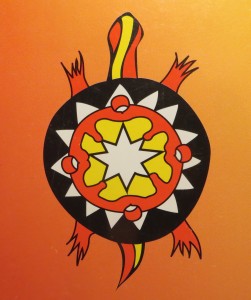 Keep the Circle Strong,
Keep the Circle Strong,
South Wind (Albert Dumont).


